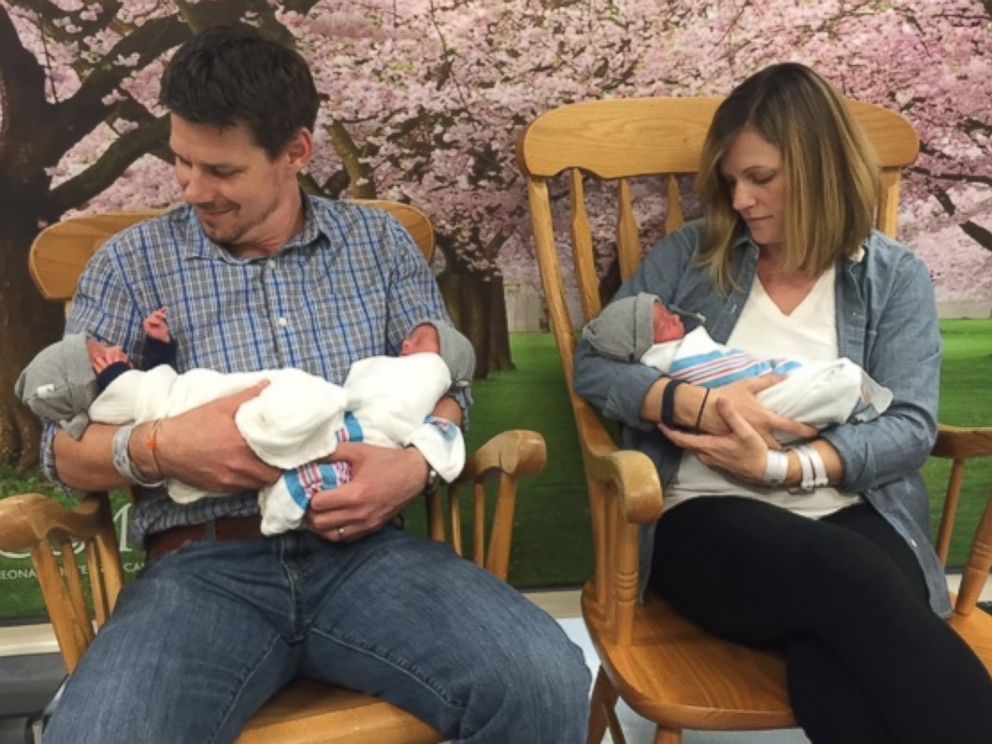Baltimore Mom Gives Birth to 'Incredibly Rare' Identical Triplets
Some doctors say the odds of having identical triplets are one in two million.
— -- One’s company, two’s a crowd, and three’s a party -– Kristen and Tom Hewitt know that firsthand after giving birth to extremely rare identical triplets in Baltimore earlier this month.
Kristen Hewitt said that when the couple got their first ultrasound, the technician was abnormally quiet. To break up the silence, her husband jokingly asked “if there was more than one baby in there.” The tech laughed and broke the news that the couple had not one, not two, but three buns in the oven.
Because the incidence of identical triplets, where one fertilized egg splits three times, is so low, there are very few absolute statistics on them. Doctors said the odds of babies like Thomas III “Tripp,” Finnegan “Finn,” and Oliver “Ollie” being conceived without the use of fertility treatments could be as high as one in two million.

“Incidence of fraternal twins are much higher (90 percent) than identical (10 percent), but, it is even a more significant ratio for triplets,” said Victor A. Khouzami, who delivered the triplets and is medical director of Women’s and Infant Services at Greater Baltimore Medical Center.
Dr. Khouzami said that while his hospital may deliver anywhere from 30 to 40 sets of triplets a year, the Hewitt triplets are the first set of identical triplets ever delivered at the hospital.
Multiple births are higher risk for mothers than single birth pregnancies. Kristen Hewitt was diagnosed with preeclampsia a week and half before going into labor. According to the Mayo Clinic, preeclampsia is a complication of pregnancy characterized by high blood pressure in the expectant mother, and can be fatal if left untreated.
All three boys were born in “excellent condition” and are at home with their parents and 11-year-old dog Jersey. The couple came up with a color-coding system of anklets and bracelets to tell the boys apart now that they’re out of the hospital.




